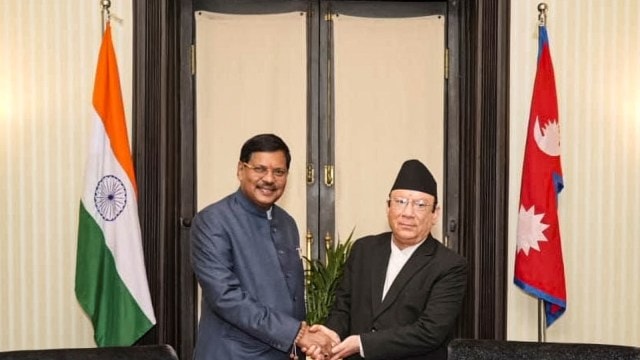ARTICLE AD BOX
 Chief Justice of India B R Gavai with Nepal’s Chief Justice Prakash Man Singh Raut. PTI
Chief Justice of India B R Gavai with Nepal’s Chief Justice Prakash Man Singh Raut. PTI
Chief Justice of India BR Gavai on Friday said the Supreme Court has not only safeguarded fundamental principles but also proactively responded to the complex and emerging challenges of the 21st century. Gavai credited the apex court’s “broad, purposive, and context-sensitive approach.”
At the Nepal-India Judicial Dialogue in Kathmandu, the CJI threw light on how the Supreme Court “has advanced the doctrinal evolution of rights across multiple dimensions, drawing deeply from the text, spirit, and purpose of the Constitution.” Giving his opinion on the ‘evolving role of judiciary with a focus on jurisprudential developments and justice sector reforms undertaken by the SC’, he said “by interpreting the law in light of contemporary challenges, courts can guide the evolution of governance, inspire public trust and reinforce the idea that democracy’s sustained not merely by institutions, but by the values they embody and exemplify.”
The CJI also explained how “the judiciary becomes both a guardian and a catalyst, protecting the foundational structures of society while also encouraging reform that strengthens the moral and ethical fabric of the nation”.
Drawing a parallel between India and Nepal, he said how “the judiciary serves as a bridge between the aspirations of the people and the ideals enshrined in the Constitution. It is tasked not only with resolving disputes but also with ensuring that the principles of justice, equality, and human dignity are upheld in practice.”
Talking about the judiciary’s proactive role in this day and age, the CJI explained: “Today the judiciary is increasingly called upon to go beyond mere textual application, engaging with the deeper purposes and consequences of the law” and “over the decades, this proactive role has become central to the judiciary’s identity.”
The CJI also highlighted some of the Supreme Court’s significant decisions. In recent years, the SC “has also increasingly recognised new rights emerging from existing constitutional provisions, interpreting the Constitution as an integrated whole rather than a collection of isolated chapters.”
He lauded the Nepal Supreme Court for its judgments advancing gender justice and privacy and rights of indigenous peoples.



.png)
.png)
.png)























 English (US) ·
English (US) ·